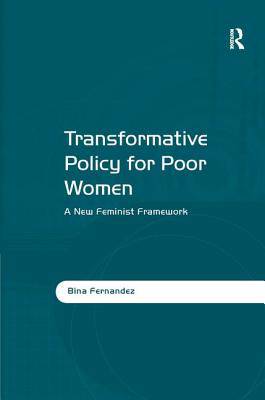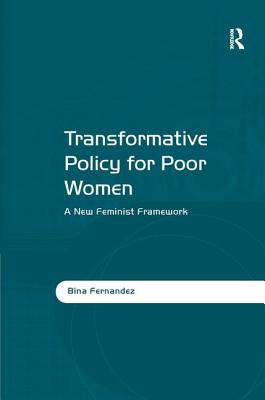
Bedankt voor het vertrouwen het afgelopen jaar! Om jou te bedanken bieden we GRATIS verzending (in België) aan op alles gedurende de hele maand januari.
- Afhalen na 1 uur in een winkel met voorraad
- Gratis thuislevering in België vanaf € 30
- Ruim aanbod met 7 miljoen producten
Bedankt voor het vertrouwen het afgelopen jaar! Om jou te bedanken bieden we GRATIS verzending (in België) aan op alles gedurende de hele maand januari.
- Afhalen na 1 uur in een winkel met voorraad
- Gratis thuislevering in België vanaf € 30
- Ruim aanbod met 7 miljoen producten
Zoeken
€ 290,45
+ 580 punten
Uitvoering
Omschrijving
What accounts for the oft-noted 'gap' between well-designed policies for women and their inadequate implementation? Why do such policies often fail to benefit the poorest women? How do policies address the intersecting inequalities of gender, class, caste, ethnic identity and race? What are the conditions under which policy may have transformative potential for poor women? This book answers these questions and many more. Presenting a new feminist framework for policy analysis that can account for policy failures, Bina Fernandez argues that these failures are often predictable and that it is necessary to unpack the actual policy practices within the policy-implementation gap. Recognising that policy is a multiply layered, contingent and politically contested discursive process, the author proposes the analysis of policy through four analytical categories: Constitutive Contexts, Representations, Practices and Consequences. Within each of these four categories, gender, class and ethnic identity are central axes of analysis. The framework is given substance through an empirical case-study of an anti-poverty policy in India, yet the wider relevance of the framework is validated through a discussion of parallels in the policy contexts of other developing countries. Transformative Policy for Poor Women provides an important and required framework to understand the gap between policy pronouncement and its praxis on the ground. These features make this book an important read for both scholars and practitioners seeking to understand policy in developing country contexts.'
Specificaties
Betrokkenen
- Auteur(s):
- Uitgeverij:
Inhoud
- Aantal bladzijden:
- 208
- Taal:
- Engels
Eigenschappen
- Productcode (EAN):
- 9781409405078
- Verschijningsdatum:
- 28/01/2012
- Uitvoering:
- Hardcover
- Formaat:
- Genaaid
- Afmetingen:
- 156 mm x 234 mm
- Gewicht:
- 471 g

Alleen bij Standaard Boekhandel
+ 580 punten op je klantenkaart van Standaard Boekhandel
Beoordelingen
We publiceren alleen reviews die voldoen aan de voorwaarden voor reviews. Bekijk onze voorwaarden voor reviews.









